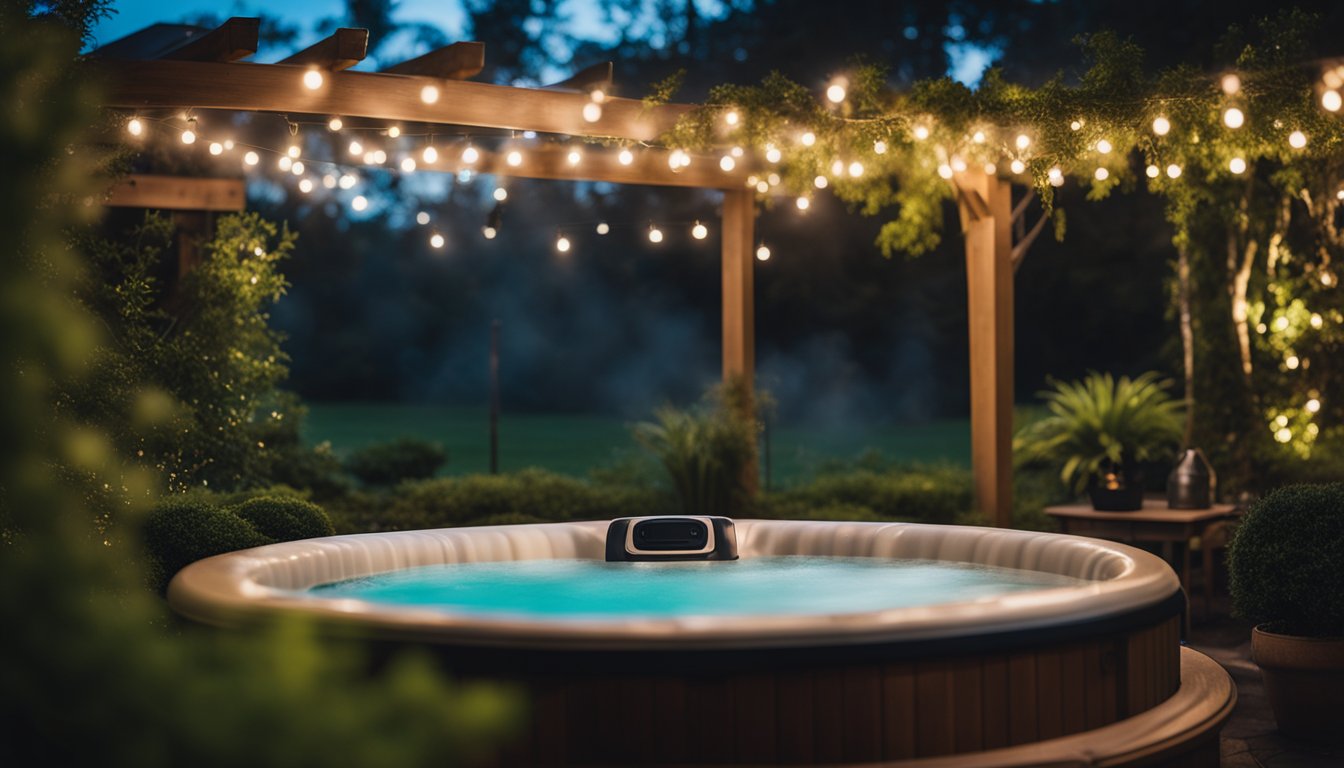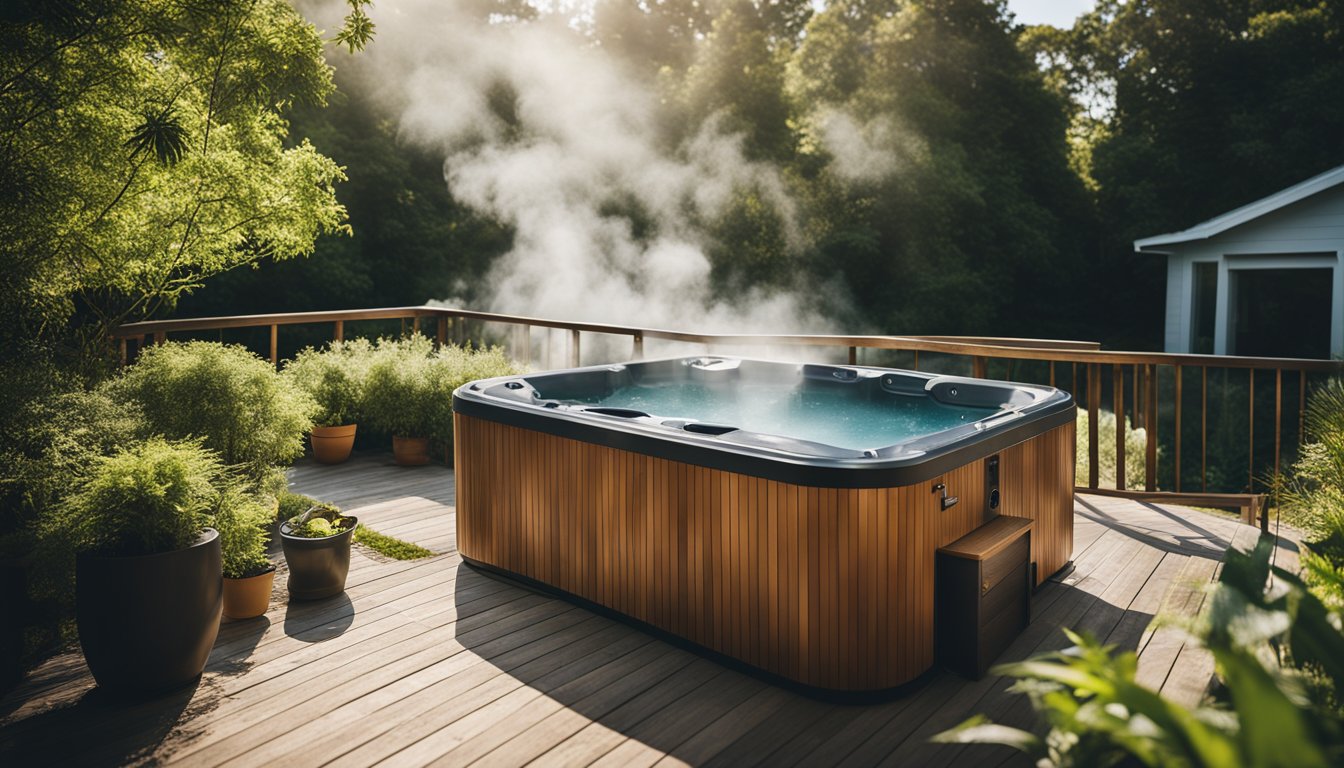Late updated: 09 Oct 2024 13:10
Written by: James Whitaker
Hot Tub Myths Debunked For Newbies: Separating Fact from Fiction
Stepping into the world of hot tubs can be an exhilarating experience, yet it's often marred by a sea of misconceptions. From high-maintenance fears to health myth debacles, misinformation abounds and can cloud the true joys of owning a hot tub. Let's set the record straight and dive into the real facts that every hot tub owner should know.

In debunking these myths, we aim to streamline your path to a seamless and enjoyable soak. Hot tubs aren't the daunting tasks they're often made out to be. Our guide cuts through the noise, ensuring that every potential hot tub enthusiast is well-equipped with knowledge.
Don't let myths deter you from reaping the benefits of a hot tub. Understanding the truth can help you maximise your enjoyment and ensure safe, satisfying experiences every time you take a dip.
Key Takeaways
- Hot tub myths can confuse new owners but aren’t insurmountable.
- Proper maintenance is more straightforward than most people believe.
- Enjoyment and safety can be maximised with accurate information.
Demystifying Hot Tub Maintenance
In our exploration of hot tub maintenance, we focus on crucial areas like balancing water chemistry, ensuring the effectiveness of filtration systems, and establishing routines for cleaning and filter replacement. Proper maintenance significantly enhances the longevity and enjoyment of your hot tub.
Understanding Water Chemistry
Water chemistry is pivotal in maintaining a healthy and enjoyable hot tub experience. The balance between pH, alkalinity, and sanitiser levels, such as bromine or chlorine, plays a vital role in preventing bacteria growth and skin irritation. We recommend testing your hot tub water frequently using specialised kits to ensure proper balance.
pH should be maintained between 7.2 and 7.8. This range ensures comfortable use and prevents equipment corrosion. Alkalinity helps stabilise pH levels and should range from 80 to 120 ppm. As for sanitisers, regular addition and monitoring keep harmful bacteria at bay while maintaining water clarity.
Remember: High bromine or chlorine levels can be just as harmful as low levels.
The Role of Filtration Systems
Filtration systems are the unsung heroes of hot tub maintenance. They constantly work to remove debris and contaminants, ensuring optimal water quality. The cartridge filter is the most common type used, known for its efficiency and ease of maintenance. Regular checking and cleaning are crucial to keep filters functioning effectively.
It is advisable to inspect the filter regularly and rinse it with a garden hose every two weeks to dirt and oils. A deep chemical cleaning should be done every two to three months, depending on usage. Never overlook cleaning, as a clogged filter can strain your system and lead to costly repairs.
Routine Cleaning and Filter Replacement
Routine cleaning involves more than just skimming the water surface. Draining and refilling your hot tub every three to four months helps eliminate chemical build-up and bacteria. Including a line flush before draining helps remove grime within the circulation system, enhancing the effectiveness of regular cleaning.
In terms of filter replacement, specific guidelines depend on usage level and filter type. Most filters require replacement at least once a year for optimal performance. Keeping spare filters on hand ensures uninterrupted maintenance. Regular upkeep, coupled with filter attention, is key to a hassle-free hot tub experience.
Maximising Hot Tub Benefits

To fully enjoy your hot tub experience, it's important to explore the wellness possibilities, relaxation techniques, and energy-efficient practices. This can enhance both health and enjoyment.
The Health Benefits of Hydrotherapy
Our hot tubs are not just for leisure; they also provide significant health advantages through hydrotherapy. Warm water immersion improves circulation, which can alleviate muscle pain and joint stiffness. This is particularly beneficial after strenuous physical activities or for individuals with arthritis.
The buoyancy of the water reduces body weight pressure, easing strain on joints and muscles. By adjusting jet configurations, we can target specific areas for a customised therapeutic experience. Hydrotherapy may also lower blood pressure and improve sleep quality by promoting relaxation.
The Truth About Hot Tub Relaxation
Soaking in a hot tub offers more than just a temporary escape. It is a comprehensive relaxation practice that can aid mental health. Creating a quiet and serene environment helps enhance the relaxation experience. Soft lighting and calming music can contribute to a peaceful atmosphere, making our hot tub sessions more soothing.
It is key to focus on breathing techniques while soaking. Slow, deep breaths in warm water can decrease stress and anxiety levels. Using aromatic oils designed for spa use can also heighten relaxation. We should remember that clear water, maintained with pool chlorine tablets and proper pH levels, enhances comfort.
Energy Efficiency and Insulation
An energy-efficient hot tub saves money and is environmentally friendly. Insulation plays a crucial role in minimising energy consumption. High-quality foam insulation locks in heat, reducing the energy required to keep the water warm.
Energy-saving features like programmable timers and efficient pumps can further enhance efficiency. Using a well-fitted cover helps maintain temperature when the hot tub is not in use, reducing heat loss.
We recommend consulting with a reputable hot tub dealer to ensure that you select a model with optimal energy-saving technology. Regular maintenance of the filtration system also conserves energy by allowing the equipment to operate smoothly. By focusing on these aspects, we can enjoy relaxation without unnecessary energy expense.
Frequently Asked Questions

Many people have queries about the upkeep, safety, and efficiency of hot tubs. We address several common concerns to clarify misconceptions and provide clear insights.
Do hot tubs require extensive maintenance to remain sanitary?
Regular maintenance is essential, but it doesn't have to be overwhelming. Simple routines, such as checking chemical levels and cleaning filters, keep water clean and equipment functioning. Modern hot tubs often come with advanced filtration systems that make upkeep more manageable.
Is it true that the use of hot tubs can lead to skin problems?
While some individuals might experience skin issues, this is usually due to incorrect use of chemicals or inadequate cleaning. Proper balance of water chemistry is key to preventing skin irritation. We recommend consulting guides or professionals to ensure the right chemical levels.
Are hot tubs energy guzzlers and significantly increase electricity bills?
Hot tubs used to be notorious for high energy consumption. However, newer models are designed with improved insulation and energy-efficient pumps. These advancements help to minimise their impact on electricity costs.
Is there a risk of hot tubs harbouring bacteria that can cause infections?
Hot tubs can, indeed, harbour bacteria if not maintained properly. Regular sanitisation and maintaining water chemistry are crucial to prevent microbial growth. Using chlorine or bromine helps in keeping the water safe and reducing the risk of infections.
Can regular hot tub use contribute to long-term adverse health effects?
There is limited evidence to suggest long-term adverse effects from moderate hot tub use. Responsible use is encouraged—limiting soak time and ensuring the water is neither too hot nor too cold can prevent potential health issues. Consulting healthcare professionals if uncertain is always a wise move.
Isn't using a hot tub in the summer too warm and therefore unnecessary?
Hot tubs can still be enjoyable in the summer months. Adjustable temperature controls allow for cooler settings, transforming the tub into a refreshing treat. Evening soaks in a warm tub can also be relaxing, even when outdoor temperatures are high.
